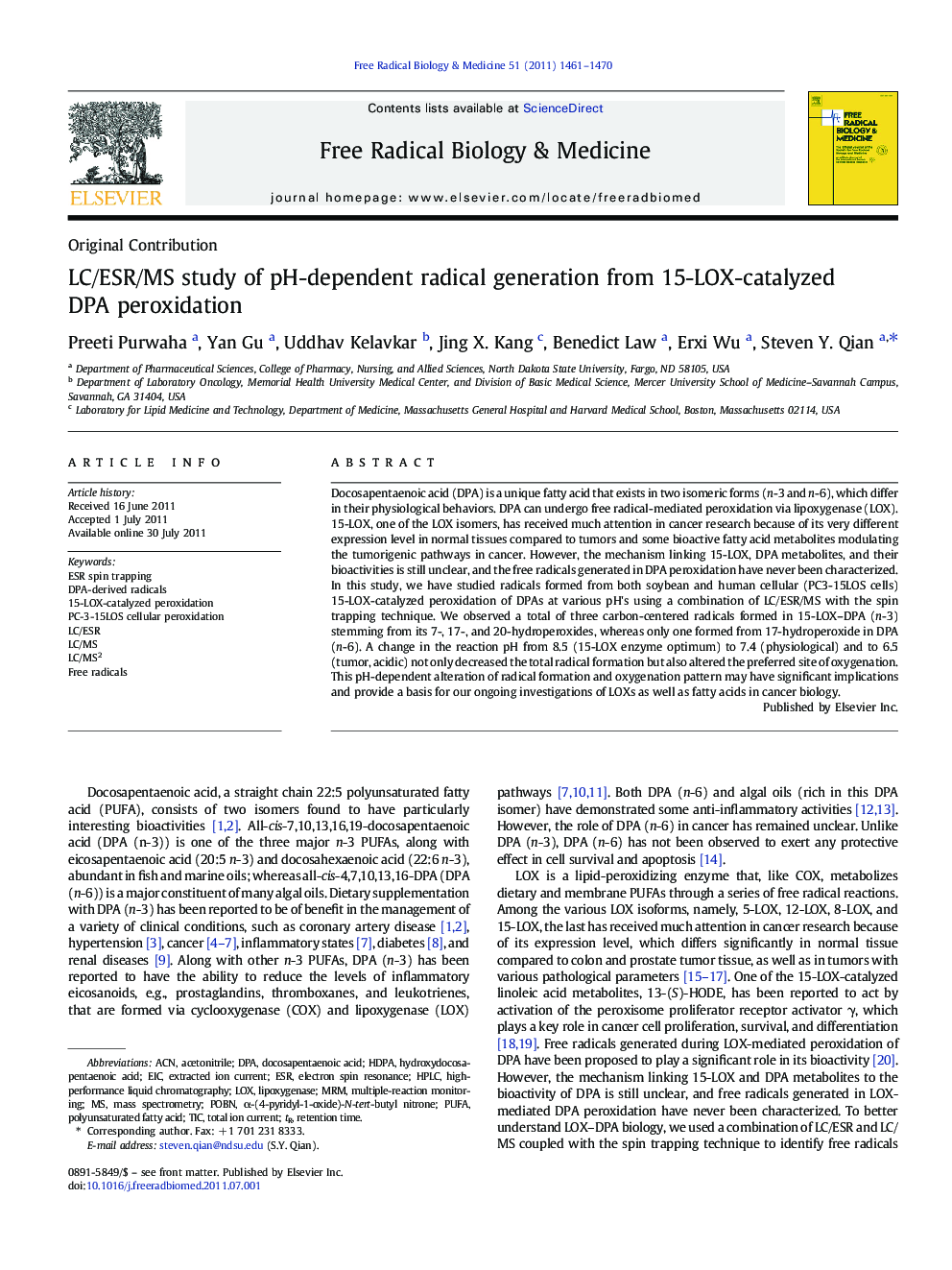| Article ID | Journal | Published Year | Pages | File Type |
|---|---|---|---|---|
| 10738345 | Free Radical Biology and Medicine | 2011 | 10 Pages |
Abstract
Docosapentaenoic acid (DPA) is a unique fatty acid that exists in two isomeric forms (n-3 and n-6), which differ in their physiological behaviors. DPA can undergo free radical-mediated peroxidation via lipoxygenase (LOX). 15-LOX, one of the LOX isomers, has received much attention in cancer research because of its very different expression level in normal tissues compared to tumors and some bioactive fatty acid metabolites modulating the tumorigenic pathways in cancer. However, the mechanism linking 15-LOX, DPA metabolites, and their bioactivities is still unclear, and the free radicals generated in DPA peroxidation have never been characterized. In this study, we have studied radicals formed from both soybean and human cellular (PC3-15LOS cells) 15-LOX-catalyzed peroxidation of DPAs at various pH's using a combination of LC/ESR/MS with the spin trapping technique. We observed a total of three carbon-centered radicals formed in 15-LOX-DPA (n-3) stemming from its 7-, 17-, and 20-hydroperoxides, whereas only one formed from 17-hydroperoxide in DPA (n-6). A change in the reaction pH from 8.5 (15-LOX enzyme optimum) to 7.4 (physiological) and to 6.5 (tumor, acidic) not only decreased the total radical formation but also altered the preferred site of oxygenation. This pH-dependent alteration of radical formation and oxygenation pattern may have significant implications and provide a basis for our ongoing investigations of LOXs as well as fatty acids in cancer biology.
Keywords
DPAα-(4-pyridyl-1-oxide)-N-tert-butyl nitroneHDPAPOBNeXtracted Ion CurrentTICMRMACNESRESR spin trappingLC/MSAcetonitriledocosapentaenoic acidPolyunsaturated fatty acidPUFALOXtotal ion currentFree radicalsElectron spin resonanceRetention timeMass spectrometrylipoxygenaseEICMultiple-reaction monitoringhigh-performance liquid chromatographyHPLC
Related Topics
Life Sciences
Biochemistry, Genetics and Molecular Biology
Ageing
Authors
Preeti Purwaha, Yan Gu, Uddhav Kelavkar, Jing X. Kang, Benedict Law, Erxi Wu, Steven Y. Qian,
